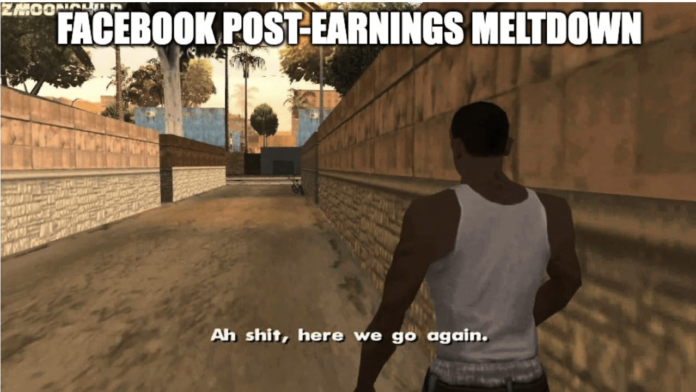Meta Myths
What happened to Meta last week — and my response to it — expressed in meme-form:

In 2018, the market was panicking about Facebook’s slowing revenue and growing expenses, and was concerned about the negative impact that Stories was having on Facebook’s feed advertising business. I wrote that the reaction was overblown in Facebook Lenses, which looked at the business in five different ways:
- Lens 1 was Facebook’s finances, which did show troubling trends in terms of revenue and expense growth:

As I noted at the time, I could understand investor trepidation about these trend lines, which is why other lenses were necessary.
- Lens 2 was Facebook’s products, where I argued that investors were over-indexed on Facebook the app and were ignoring Instagram’s growth potential, and, in the very long run, WhatsApp.
- Lens 3 was Facebook’s advertising infrastructure, which I argued was very underrated, and which would provide a platform for dramatically scaling Instagram monetization in particular.
- Lens 4 was Facebook’s moats, including its network, scaled advertising product, and investments in security and content review.
- Lens 5 was Facebook’s raison d’être — connecting people — where I made the argument that the company’s core competency was in addressing a human desire that wasn’t going anywhere.
I concluded:
To insist that Facebook will die any day now is in some respects to suggest that humanity will cease to exist any day now; granted, it is a company and companies fail, but even if Facebook failed it would only be a matter of time before another Facebook rose to replace it.
That seems unlikely: for all of the company’s travails and controversies over the past few years, its moats are deeper than ever, its money-making potential not only huge but growing both internally and secularly; to that end, what is perhaps most distressing of all to would-be competitors is in fact this quarter’s results: at the end of the day Facebook took a massive hit by choice; the company is not maximizing the short-term, it is spending the money and suppressing its revenue potential in favor of becoming more impenetrable than ever.
The optimism proved prescient, at least for the next three years:

Facebook’s stock price increased by 118% between the day I wrote that Article, before peaking on September 15, 2021. Over the past year, though, things have certainly gone in the opposite direction…



